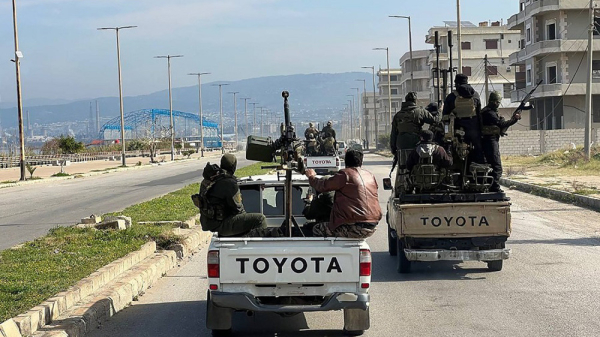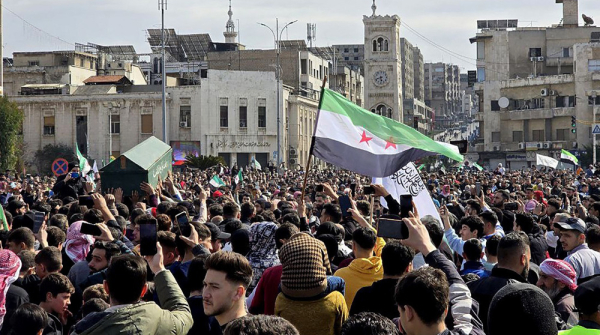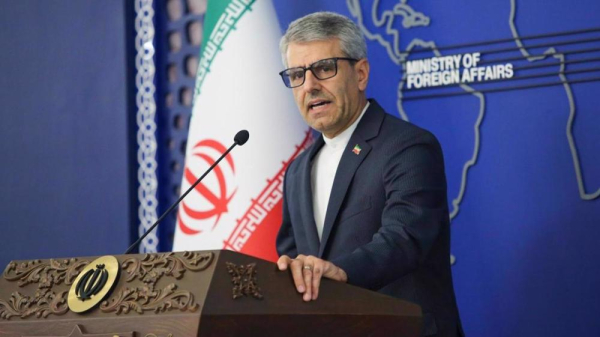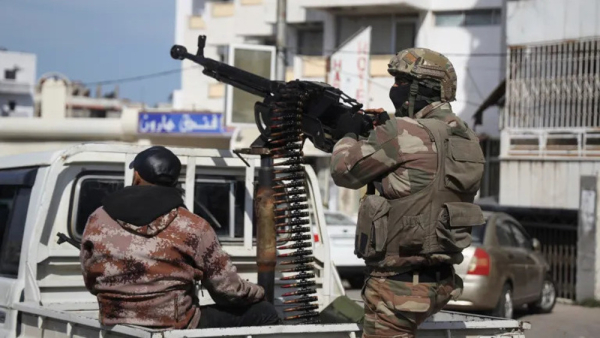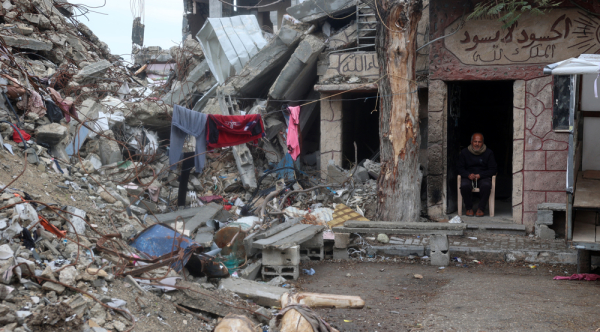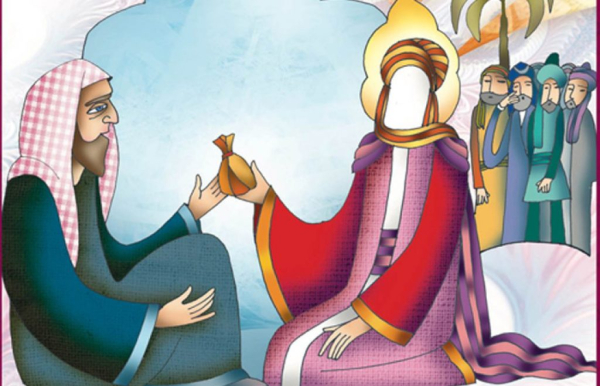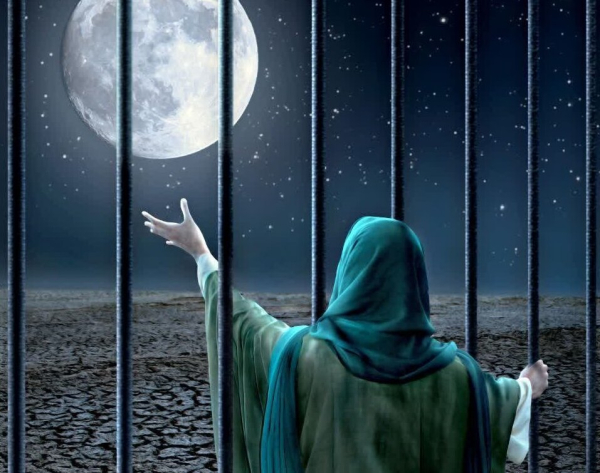zarezadeh
Rulings on a body part that has been injured
Question:
A part of a finger has a needle-sized amount of blood due to the skin being separated, and the person did not notice. When he washes his hands and after working with wet hands for a while, he sees that his hands are bloody; should he rinse all the objects that his wet hands touched?
Answer:
Whatever is not certain to be impure is considered pure.
Question about clothes becoming impure during Tawaf
Question:
If a person forgets about impurity on his body or clothes and performs Tawaf, and then remembers it during Tawaf or afterwards, what is his duty?
Answer:
The obligatory precaution is to repeat Tawaf.
Clashes, revenge killings in Syria leave more than 1,000 dead in 2 days
A UK-based war monitor says more than 1,000 people have been killed in two days of intense clashes between militants aligned with Syria’s ruling Hay’at Tahrir al-Sham administration and armed opposition groups loyal to former President Bashar al-Assad and ensuing revenge killings in the country’s western region.
The so-called Syrian Observatory for Human Rights reported on Sunday that the death toll from the ongoing violence has risen to over 1,000 people, including 745 civilians, who were killed mostly execution-style, 125 HTS militants and 148 members of opposition groups.
The Observatory had earlier reported that at least 237 people, including 142 non-combatants, have been killed in Syria’s coastal region since the heavy fighting began on Thursday.
The clashes marked the deadliest escalation since the fall of the previous government last December.
Syria’s de facto leader, Abu Mohammad al-Julani, called for “peace” and “national unity” following the deadly violence, saying the developments are within “expected challenges.”
"We have to preserve national unity and domestic peace, we can live together," Julani said in a circulated video, speaking at a mosque in his childhood neighborhood of Mazzah, in Damascus.
The latest development comes as HTS forces continue their crackdown on remnants of the former Syrian military in the provinces of Latakia, Tartus, and Hama.
The clashes have taken place in the country’s northwestern coastal region, which is predominantly inhabited by the Alawite minority sect. Former Syrian President Bashar Assad also comes from the Alawite community.
The attacks come while the HTS administration has sought to assure religious and ethnic minorities that their rights would be upheld.
The HTS militant group seized control of Damascus on December 8, culminating a swift offensive that had begun in Aleppo just two weeks prior to that and ultimately brought an end to Assad’s 24-year rule.
Press TV’s website
UN rights chief demands immediate end to killing of civilians in Syria
The UN Human Rights chief has called for an immediate halt to the ongoing violence in northwestern Syria, where entire families have reportedly been killed in escalating clashes, demanding a prompt investigation into the killings and holding the perpetrators accountable.
UN High Commissioner for Human Rights Volker Turk made the remarks in a statement on Sunday, as fierce clashes are continuing between militants aligned with Syria’s ruling Hay’at Tahrir al-Sham administration and armed opposition groups loyal to former President Bashar al-Assad in Syria’s coastal regions.
“There are reports of summary executions on a sectarian basis by unidentified perpetrators, by members of the caretaker authorities’ security forces, as well as by elements associated with the former government,” Turk said.
He went on to say that there are “extremely disturbing” reports of entire families being killed, including women, children and hors de combat fighters, stressing that “the killing of civilians in coastal areas in northwest Syria must cease, immediately.”
The human rights chief further called for “prompt, transparent and impartial investigations into all the killings and other violations,” noting that “those responsible must be held to account, in line with international law norms and standards.”
Earlier in the day, the so-called Syrian Observatory for Human Rights reported that the death toll from the ongoing violence in northwestern Syria has risen to over 1,000 people in two days, including 745 civilians, who were killed mostly execution-style, 125 HTS militants and 148 members of opposition groups.
Clashes erupted in the country’s northwestern coastal region on Thursday, which is predominantly inhabited by the Alawite minority sect. Former Syrian President Bashar Assad also comes from the Alawite community.
The attacks come while the HTS administration has sought to assure religious and ethnic minorities that their rights would be upheld.
Syria’s de facto leader, Abu Mohammad al-Julani, has called for “peace” and “national unity” following the deadly violence, saying the developments are within “expected challenges.”
Meanwhile, Tedros Adhanom Ghebreyesus, the chief of the World Health Organization (WHO) called the clashes “deeply concerning,” saying they are directly impacting people’s health, as health facilities and ambulances had been damaged.
“WHO is working to deliver emergency medicines and trauma supplies for the immediate care of the injured,” Tedros said in a post on X.
“WHO urges all parties to respect and safeguard health services to ensure medical aid reaches those who need it most. Peace is the best medicine,” he added.
The HTS militant group seized control of Damascus on December 8, culminating a swift offensive that had begun in Aleppo just two weeks before and ultimately brought an end to Assad’s 24-year rule.
Press TV’s website
Iran condemns deadly violence in Syria against minority groups, urges end to massacre
Iran's Foreign Ministry conveys Tehran's strong condemnation of the massacres against civilians in Syria, denouncing the bloodletting as well as any other hostile and ill-intentioned action targeting minority groups in the Arab country.
"In recent days, unfortunate incidents have taken place in certain areas of Syria. We are deeply concerned about reports of insecurity and violence,” spokesman Esmaeil Baghaei said during a press conference on Monday.
“We strongly condemn such actions, and any mass killing or action against civilians is unacceptable and unjustifiable,” he added.
The remarks came amid reports of ongoing violence in northwestern Syria, where entire families have reportedly been killed in escalating clashes.
The death toll from the violence in northwestern Syria has risen to over 1,000 people in just two days, including 745 civilians, who were killed mostly execution-style, 125 militants belonging to the country’s Hay'at Tahrir al-Sham (HTS)-led regime, and nearly 150 members of opposition groups, the so-called Syrian Observatory for Human Rights, a UK-based monitor said on Sunday.
Clashes erupted in the country’s northwestern coastal region on Thursday, which is predominantly inhabited by the Alawite minority sect.
Baghaei noted that “the fact that certain Alawite communities have been targeted has wounded consciences [around the world].”
He called the unwelcome development “a real test” for the HTS-led regime to fulfill its responsibilities “in safeguarding the lives of Syrians.”
“We have conveyed our concerns through appropriate channels to countries that hold influence. Such incidents only complicate Syria’s political situation further," the official concluded regarding the ongoing developments in the Arab country.
Sanctions on Israel
Elsewhere in his remarks, the spokesman addressed the Israeli regime’s ongoing genocidal atrocities against Palestinians in the Gaza Strip that have claimed the lives of at least 48,450 people, mostly women and children.
He pointed to the Islamic Republic’s call on various countries to impose sanctions on the regime as a means of punishing it for the atrocities.
"The demand for an end to any form of support for this regime has been put forward. If we acknowledge that genocide has occurred in Gaza, including the cutting off of water and electricity, which is beyond doubt, then, under the Genocide Convention, countries have obligations to use all means available to stop the genocide.”
“From the very beginning, some analysts described the claim as a kind of media-psychological game, while others said it was a sign of confusion within the US administration and its bureaucratic system,” he, meanwhile, noted.
The official clarified, however, that “no, no letter has been received."
The Islamic Republic, though, has never closed the door to negotiations in the true and correct sense of the word, he remarked, saying the country had continued its discussions with European countries over the recent months.
The spokesman reemphasized that Tehran did not accept negotiations based on intimidation and threats, and did not even consider such interactions to be negotiations in principle.
Press TV’s website
Hezbollah rejects ‘baseless’ claims of involvement in deadly Syria clashes
The Lebanese resistance movement Hezbollah has categorically dismissed allegations of involvement in the recent deadly clashes in Syria, describing the accusations as “baseless.”
In a statement released on Saturday, Hezbollah’s Media Relations Office urged media outlets to exercise caution in reporting news and avoid misinformation campaigns that serve foreign political agendas.
“Some parties persist in involving Hezbollah’s name in the events taking place in Syria and accusing it of being a party to the ongoing conflict there,” it said. “Hezbollah clearly and categorically denies these baseless allegations.”
The statement came two days after the Hay’at Tahrir al-Sham (HTS) militants of the interim ruling regime in Syria and armed opposition groups engaged in deadly confrontations.
The clashes took place in the country’s northwestern coastal region, which is predominantly inhabited by the Alawite minority sect. Former Syrian President Bashar Assad also comes from the Alawite community.
The so-called Syrian Observatory for Human Rights (SOHR) said more than 1,000 people were killed in two days of fighting in the provinces of Tartus and Latakia.
The figure included 745 civilians, who were killed mostly execution-style, in addition to 125 HTS militants and 148 members of opposition groups, the UK-based monitor added.
Another monitoring group, the Syrian Network for Human Rights (SNHR) said the HTS militants committed “widespread field executions” of young men and adult males “without clear distinction between civilians and others.”
The violence broke out three months after foreign-backed HTS militants announced the fall of Assad’s government following a rapid two-week onslaught.
Press TV’s website
Defying Trump’s ‘riviera’ scheme, European powers back Arab reconstruction plan for Gaza
Key European nations, including the UK, France, Germany, and Italy, have backed an Egyptian proposal to reconstruct Gaza as a counter to US President Donald Trump’s controversial “riviera” plan that advocates the forcible displacement of Palestinians from the Strip.
Despite their support for and whitewashing of Israel’s genocidal actions in the Gaza Strip since the start of the war in October 2023, the foreign ministers of the UK, France, Germany, and Italy announced in a statement on Saturday that they endorse the Egyptian initiative that would improve “catastrophic living conditions for the Palestinians.”
“The plan shows a realistic path to the reconstruction of Gaza and promises, if implemented, swift and sustainable improvement of the catastrophic living conditions for the Palestinians living in Gaza,” read the statement.
On Saturday, the 57-member Organization of Islamic Cooperation (OIC) officially adopted the Arab League’s proposal for Gaza’s reconstruction during an emergency meeting in Saudi Arabia.
The OIC urged “the international community and international and regional funding institutions to swiftly provide the necessary support for the plan.”
A comprehensive draft of the Egyptian-proposed Gaza reconstruction plan includes allocating $53 billion for rebuilding efforts and establishing a management committee to facilitate the Palestinian Authority’s return within six months.
The initiative further outlines a series of key measures, including an international conference in Cairo, a donor-contribution trust fund, and three reconstruction phases spanning six months to two and a half years.
The early recovery phase requires $3 billion, and the subsequent phases cost $20 billion and $30 billion, respectively.
Both Washington and Tel Aviv have expressed opposition to its implementation.
The Egyptian-proposed reconstruction plan stands in contrast to Trump's controversial suggestion that the US “take over” Gaza, transform it into the “Riviera of the Middle East,” and displace Palestinians to neighboring Arab nations. His proposal drew widespread condemnation,
The Israeli regime endorses Trump's proposal advocating the ethnic cleansing of Palestinians from Gaza, where its relentless attacks since 2023 have killed over 48,000 Palestinians, primarily women and children.
Press TV’s website
Companions of Imam Musa al-Kazim (a.s.)
There is no precise information about the companions of Imam Kazim (a.s.) and there is disagreement about their number. Sheikh Tusi counted their number as 272, and Barki counted their number as 160. Baqir Sharif al-Qarashi, the author of Hayat al-Imam Musa ibn Ja'far, rejected Barki's statement that mentioned their number as 160, and he himself named 321 as the companions of the Imam.
Ali ibn Yaqtin, Hisham ibn Hakam, Hisham ibn Salim, Muhammad ibn Abi Umayr, Hammad ibn Isa, Yunus ibn Abd al-Rahman, Safwan ibn Yahya, and Safwan Jamal were among the companions of Imam Kazim, some of whom, like Safwan ibn Yahya and Muhammad ibn Abi Umayr, are mentioned among the companions of consensus. After the martyrdom of Imam Kazim, a number of his companions, including Ali ibn Abi Hamzah Bata'ini, Ziyad ibn Marwan, and Uthman ibn Isa, did not accept the Imamate of Ali ibn Musa al-Rida (a.s.) and stopped at the Imamate of Musa ibn Ja'far.
This group became known as the Waqfiyyah. Of course, some of them later accepted the Imamate of Imam Reza (a.s.)
The Status of Imam Musa al-Kazim (a.s.) Among Sunnis
Sunnis respect the seventh Imam of the Shiites as a religious scholar. Some of their elders have praised Imam al-Kazim's knowledge and ethics and have spoken of his tolerance, generosity, abundance of worship, and other moral qualities.
Instances of Imam al-Kazim's (a.s.) tolerance and worship have been reported in Sunni sources. Some Sunni scholars, such as Sam'ani, a historian, hadith scholar, and jurist Shafi'i of the sixth century AH, used to visit the grave of Imam al-Kazim and seek his help. Abu Ali Khalal, a Sunni scholar in the third century AH, said that whenever I had a problem, I would visit the grave of Musa ibn Ja'far and seek his help, and my problem would be solved. Imam al-Shafi'i, one of the four Sunni jurists, is also quoted as describing his grave as a "healing medicine."
Imam Kazim (AS) in Prison
Imam Musa Kazim was summoned and imprisoned by the Abbasid caliphs several times during his Imamate. The first time was during the caliphate of Mahdi Abbasi, when the Imam was transferred from Medina to Baghdad by order of the caliph. Harun also imprisoned the Imam twice. The time of the first arrest and imprisonment is not mentioned in the sources, but the second time was on 20 Shawwal 179 AH in Medina and on 7 Dhul-Hijjah he was imprisoned in the house of Isa ibn Ja'far in Basra. According to Sheikh Mufid, Harun wrote a letter to Isa ibn Ja'far in 180 AH asking him to kill the Imam, but he refused.
After a while, the Imam was transferred to the prison of Fadl ibn Rabi' in Baghdad. Imam Kazim (AS) spent the last years of his life in the prisons of Fadl ibn Yahya and Sindi ibn Shahak.
In the Ziyarat of Imam Kazim (AS), he is greeted with the phrase الْمُعَذَّبِ فِي قَعْرِ السُّجُون; the one who was tortured in the dungeons. In the Ziyarat of the Imam, his prison is also mentioned as ظُلَمْمِرِ. A prison in which it is impossible to stretch one's legs and sleep is called a matmura. Also, the underground prisons of Baghdad were humid and damp (matmura) due to their proximity to the Tigris.
There are different reports in the sources about the reason why the seventh Shiite Imam was arrested by the Abbasid caliphs and transferred to prison. According to some reports, the reason for the arrest of Musa ibn Ja'far on the orders of Harun was the jealousy of Yahya Barmaki and the slander of Ali ibn Isma'il ibn Ja'far, his nephew, to Harun.
It is said that Harun was sensitive to the Shiites' relationship with Imam Kazim and feared that the Shiites' belief in the Imamate of the Imam would weaken his government.
Also, according to some reports, the reason for Imam Kazim's (a.s.) imprisonment was that some Shiites, such as Hisham ibn Hakam, did not comply with the Imam's wishes, even though the Imam had ordered them to practice taqiyyah. These reports have listed Hisham ibn Hakam's debates as one of the reasons for the Imam's imprisonment.
